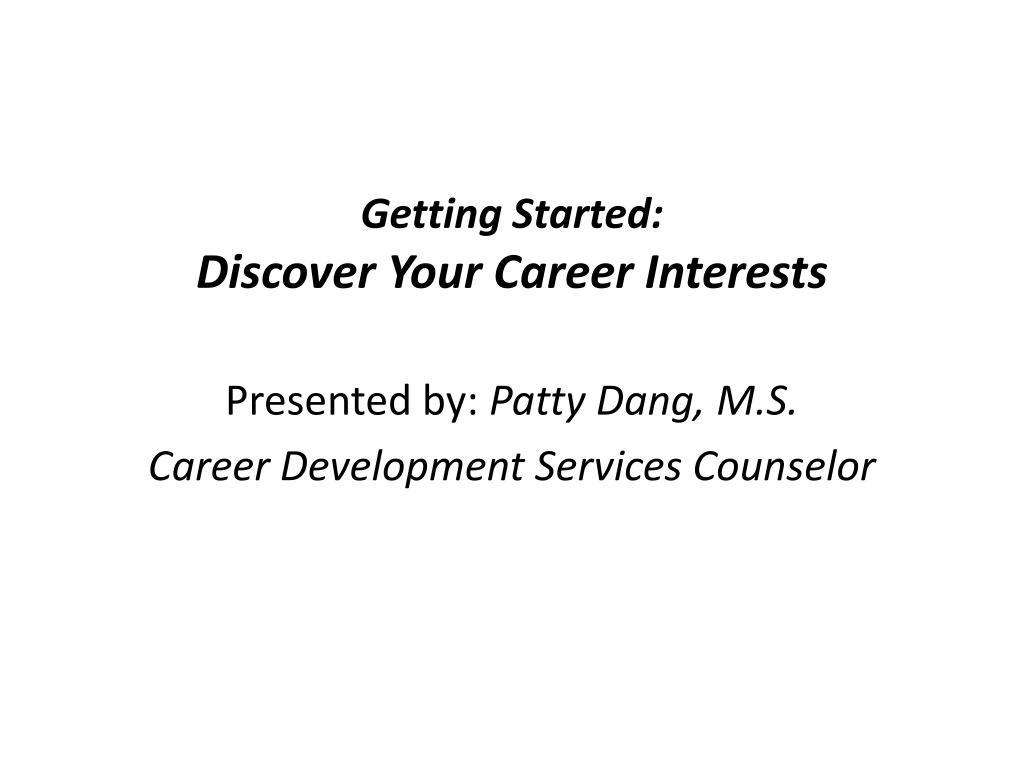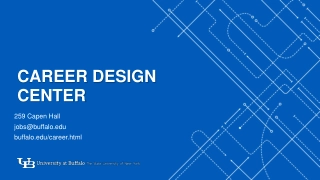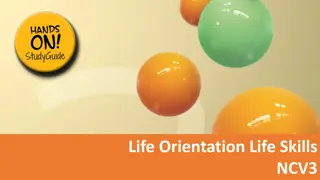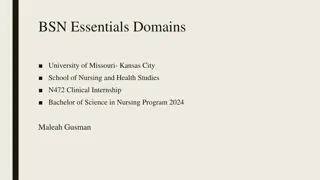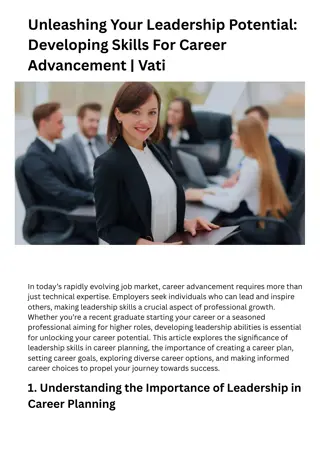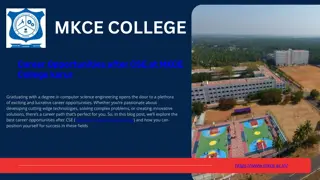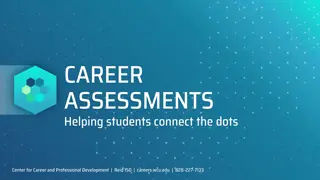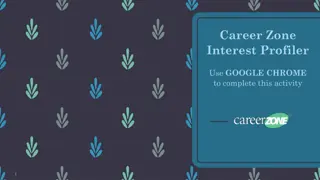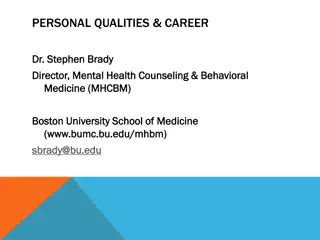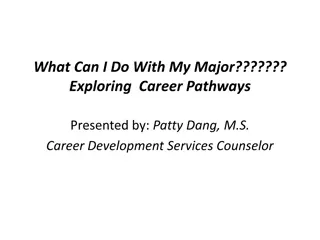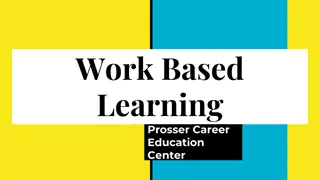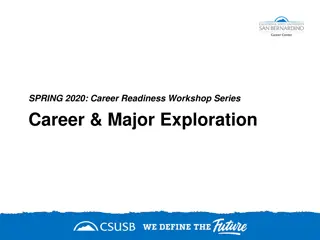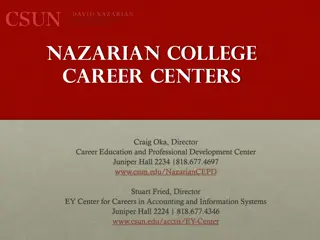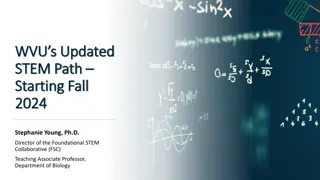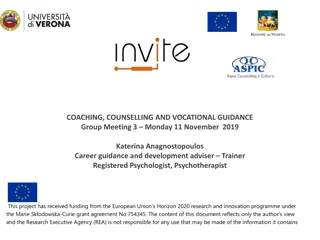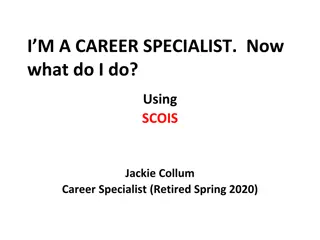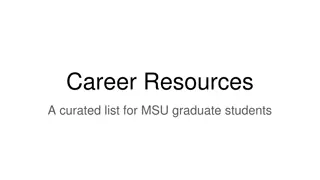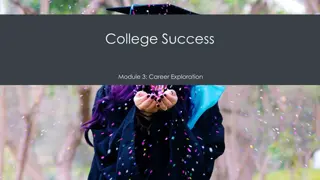Career Development Essentials: Discover Your Path to Success
Explore the career development process, assess your personality, values, skills, and interests, conduct self-discovery, and dive into career research to design your career plan. Learn how to connect your strengths with suitable majors or careers and utilize career assessments to make informed decisions. Engage in self-exploration, meet with counselors, set short-term goals, gain practical experience through internships, and enhance your job search strategies for a successful career launch.
Download Presentation

Please find below an Image/Link to download the presentation.
The content on the website is provided AS IS for your information and personal use only. It may not be sold, licensed, or shared on other websites without obtaining consent from the author. Download presentation by click this link. If you encounter any issues during the download, it is possible that the publisher has removed the file from their server.
E N D
Presentation Transcript
Getting Started: Discover Your Career Interests Presented by: Patty Dang, M.S. Career Development Services Counselor
Learning Outcomes Describe the three types of career assessments available to CI Students. Identify where you are in the 5 stages of the career development process. Analyze how your personality, skills, values and interests connect to your career development.
Agenda Career Development Process What Are Career Assessments? Inventory your personality, values, skills and interests Personality Inventory (MBTI) Values (Eureka & Career Cruising) Skills (Eureka & Career Cruising Interests (Eureka & Career Cruising What do I like to do vs. what I m good at How Do Assessments Help? Connect personality values, skills and interests into majors or careers Clarifies your decision-making process 5 Stages Non-linear process Stages recycle depending on the person Focus on self- discovery/explora tion
Career Development Process Self- Career Research Career Exploration Understand multiple career pathways Review job descriptions Design Your Career Plan Short-term goals? Meet with a Career Counselor Decision- Making Creating a timeline Experience Your Field Internships Gain hands- on work experience and skills Relationship Building Job search strategies Launch Your Career Proactive job search strategies Networking Update resume and cover letter Practice Mock Interviews Salary Negotiations Discovery Who Am I? What is important to me? What do I value more? Do my personal interests relate to careers? How do I get help?
Self Discovery What is important to me in the world of work? How do my personality, values, interests, skills, match with my career interests? What is more valuable to me? Use Career Assessment to explore personality, values interests and skills What classes do I like? Speak with a Career Counselor or Academic Advisor
Career Research Conduct career exploration using multiple sources (bls.gov, eurkea, career cruising) Understand multiple career pathways (salary information, educational preparation, training, experience, and industry trends) Review job descriptions to improve your understanding of the skills and experience required by employers Request an informational interview with a professional related to your career interest
Career Planning Develop short-term and long-term goals Writing down goals and plans Work with a Career Counselor Narrow down to 3 specific job types or industries Creating a timeline (getting internship, completing resume & cover letter, prepare for mock-interview)
Experience Your Field Obtain a job or an internship related to your career interests Gain hands-on work experience and skills Build relationships with employers and mentors (faculty, career counselor, academic advisor, supervisor) Build job search strategies (networking, career workshops, employer panels, career fairs)
Launch Your Career Build and develop proactive job search strategies Continue to network with friends, family, faculty, staff, mentors, supervisors Continue to update resume and cover letter regularly (every few months) Practice Mock Interviews, Salary Negotiations, professional development, staying current on industry trends
Career Assessments Personality Inventory Values Inventory Skills Inventory Interests Inventory What you enjoy doing, i.e. playing golf, taking long walks, hanging out with friends Connect personality values, skills and interests into majors or careers Measures a person's individual traits, characteristics, motivational drives, needs, and attitudes Can address strengths and weaknesses Inventory of natural preferences Inventory your ability and skills Attempts to match your qualifications to careers Inventory the things that are important to you, such as achievement, status, and autonomy Specific interest in the activities of the work itself Favorable conditions that accompany an occupational choice, such as physical setting, and earning potential
Myers-Briggs Type Indicator Personality Type Inventory Helps you understand your natural inborn preferences Understanding your type will help you to determine if your career interests aligns with your personality Assists in understanding other types and learn to effectively communicate with others in a work setting
Eureka Assessments Personality (True Colors) Skills (Microskills) Values/Interests (Occ-U-Sort) Resources Graduate School Information Career Planning Scholarship Info
Career Cruising Assessments Skills (My Skills, Ability Profiler) Values/Interests (Career Matchmaker) Resources Graduate School Information (Education & Training) Career Planning (Explore Careers) Scholarship Info (Education & Training/Financial Aid)
How do these assessments help? Understanding your personality, values skills and interests will help you Decide if your career choice fits or aligns with you Match work environment with your personality, skills and interests Explore career pathways and conduct career research
How do these assessments help? The assessment results will assist in your Career Development Process by Exploring your personality, values, skills and interests to recognize what is important to you, in the world of work Improving your chances of selecting a more fulfilling career that matches with your personality, values, skills and interests
How do these assessments help? The information is always relevant to your career because You can adapt what you know about yourself to your work environment This information can help you maximize your potential strengths and help you become aware of some of your weaknesses It will help you learn how to communicate your preferences and abilities to your supervisor and colleagues
Resources to help you Career Development Services: Website Career Steps on CDS Website: Career Steps 4-year Career Compass Guide: Career Compass Detailed Listing of Workshops & Events: Schedule Exploring Majors: College Majors 101, Myplan, What Can I Do With My Major
Getting Started: Discover Your Career Interests Survey http://go.csuci.edu/cdsdiscover Thank You!
Questions? Please feel free to come by the Career Center for Drop-in Counseling held every Thursday at 9:30 a.m. - 12:00 p.m. from September 13, 2012 November 29, 2012 Amanda Carpenter, M.S. Coordinator of Career Development Services & Henry L. "Hank" Lacayo Institute Internship Program California State University Channel Islands Bell Tower 1527 (805) 437-3565 (office) amanda.carpenter@csuci.edu Patty Dang Career Development Services Counselor California State University Channel Islands Bell Tower 1548 (805) 437-3270 (office) (805) 437-8899 (fax) career.services@csuci.edu Career Development Center California State University Channel Islands Bell Tower 1548 (805) 437-3270 (office) (805) 437-8899 (fax) career.services@csuci.edu www.csuci.edu/careerdevelopment
